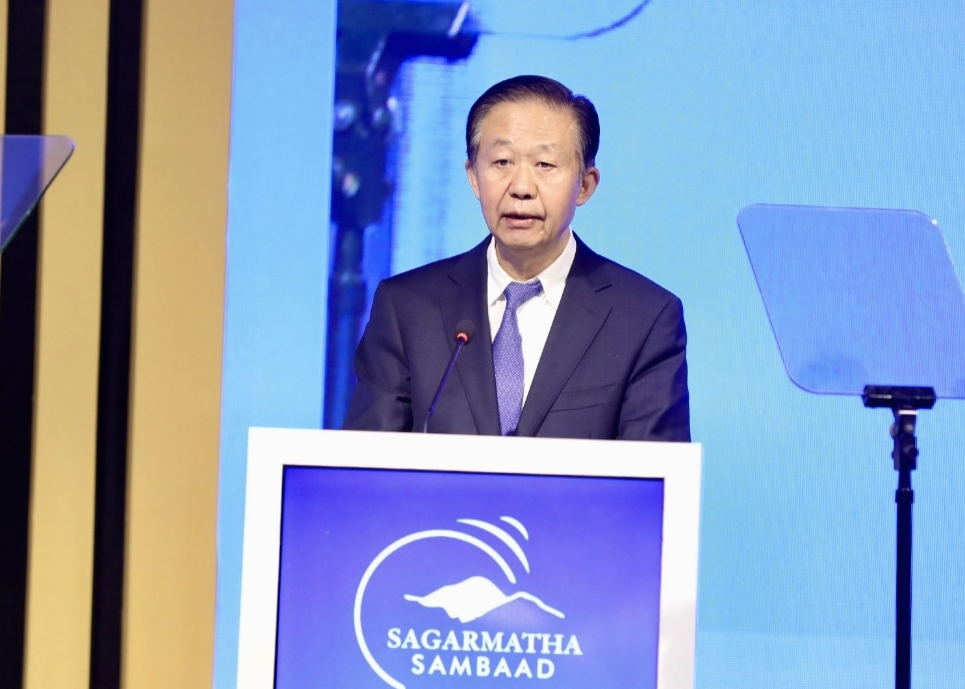Kathmandu, Nepal – The inaugural session of the Sagarmatha Dialogue, held in Kathmandu, resonated with calls for urgent and united global action to combat the escalating climate crisis. Key speakers from Nepal and around the world emphasized that climate change, as a global issue, demands collective efforts rather than isolated initiatives.
Nepal’s Foreign Minister Dr. Arzu Rana Deuba inaugurated the dialogue, highlighting the existential threats posed by climate change. She stressed that it is no longer confined to specific regions or nations but has become a crisis endangering the entire human race. “Climate change is a global problem, threatening humanity’s future. No nation can address this challenge alone; united action is essential,” she said.
The dialogue, inspired by the motto "Vade Vade Jayate Tattvabodhah" (truth is revealed through dialogue), aims to foster meaningful discussions to address shared challenges. This year’s theme, “Climate Change, Mountains, and the Future of Humanity,” underscores the urgency to protect vulnerable mountain ecosystems and the communities that depend on them.
Nepal’s Vulnerabilities and Leadership
Dr. Deuba highlighted the disproportionate impact of climate change on Nepal, despite its minimal contribution to global emissions. “As stewards of our rivers, forests, and mountains, we face an unequal burden of climate change impacts. This is a grave injustice that must be urgently addressed,” she remarked.
She cited Nepal’s struggles with glacial lake outbursts, droughts, and forest fires as evidence of the growing crisis. Nepal’s leadership in reforestation, local adaptation plans, and its ambitious goal to achieve net-zero emissions by 2045 was lauded as a model for global climate action.
International Solidarity and Responsibility
Speakers from China, India, Azerbaijan, and the United Nations echoed the need for collective global action.
China’s Vice Chairman Xiao Qi emphasized China’s commitment to ecological governance and sustainable development. “China stands ready to collaborate with Nepal and other Himalayan nations to promote shared prosperity and a sustainable future,” he said.
India’s Environment Minister Bhupender Yadav called for equitable climate action, urging high carbon-emitting nations to fulfill their commitments to climate finance and technology transfer. “Mountain nations must unite to address the challenges ahead, ensuring fairness in global climate responsibilities,” he stated.
Azerbaijan’s representative and COP-29 Chair Mukhtar Babayev stressed the importance of mobilizing financial resources for adaptation and mitigation. “We must hold nations accountable for their commitments to combat irreversible climate damages,” he said.
A Call for Action
United Nations Secretary-General António Guterres, addressing the event via video, highlighted the rapid melting of glaciers and its implications for the Himalayas. “The world must learn from Nepal’s climate leadership and act decisively to mitigate global warming’s devastating impacts,” he urged.
The three-day Sagarmatha Dialogue is poised to serve as a platform for international leaders, policymakers, and experts to exchange ideas and build partnerships. It aims to lay the groundwork for robust global strategies to tackle climate change, safeguard ecosystems, and ensure a sustainable future for humanity.